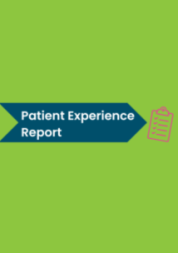Men talk health
In our role as the patient voice we know that men share less feedback about health and care services than women.
We ran this project to find out how men in Lewisham look after their mental health and what stops them from speaking up about their issues.
We ran this project to find out how men in Lewisham look after their mental health and what stops them from speaking up about their issues.

Using focus groups, we spoke to 108 men and found that they’re more likely to isolate themselves than talk to family or mental health services. Shockingly, only 10% of respondents felt there is adequate support for men’s mental health with many highlighting a cultural stigma, especially those from the Caribbean community.
Findings
Commissioners and providers
- We have been working with children and young people to raise awareness of mental health and to teach the five ways to wellbeing. We would welcome other providers to offer similar training to reach a wide range of communities in the borough as we feel that providing ongoing training geared towards local communities including children and young people with aims to reduce stigma around mental health and negative impact of the concept of masculinity would be beneficial.
- A campaign to raise issues of men’s mental health targeting local communities and employers would help men to maintain their mental health and seek help when needed.
Commissioners
- Provision of free or affordable activities to those at risk of poor mental health would be key. Some of the activities that local men mentioned as beneficial were sport activities, yoga, training on how to deal/manage symptoms, meditation, and peer support groups. As there are many activities that are held for females only, it could be an advantage to offer the same for men.
- Use of social prescribing would help men who access support through their GP and other clinicians
Providers
- Building on the existing programme of activities that local services and organisations offer would improve access for local men. This could be done by identifying activities that men enjoy and/or would like to access that are out of the borough and developing them locally.
- Many men value social and peer support groups, however some said that they would be interested in having a trusted person that they could speak to when not feeling mentally well. It would be helpful to develop a local helpline, or create a pool of designated people that men could contact when they needed to speak to someone.
- Quick access to services when needed with caring staff who listen to patients and clearly explain treatment options and a care pathway are key in improving men’s experience of services.
- It would be helpful to provide meaningful ways for men to provide their feedback and be actively involved in shaping the mental health services they use.
Downloads
If you require this report in an alternative format, please get in touch with us to discuss your request.
File download
Men health talk report
